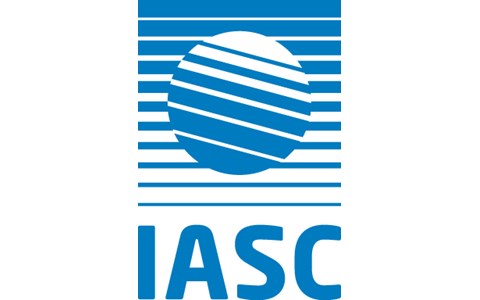 The International Arctic Science Committee awards the 2021 IASC Medal to Atsumu Ohmura Ph.D., Professor Emeritus at ETH Zurich (Switzerland), for outstanding achievements in understanding complex climate and glacier relationships, global energy budgets, and thermal energy flow in the Arctic; and for excellence in program building, international collaborations, and mentorship in the cryospheric sciences.
The International Arctic Science Committee awards the 2021 IASC Medal to Atsumu Ohmura Ph.D., Professor Emeritus at ETH Zurich (Switzerland), for outstanding achievements in understanding complex climate and glacier relationships, global energy budgets, and thermal energy flow in the Arctic; and for excellence in program building, international collaborations, and mentorship in the cryospheric sciences.
Dr. Ohmura has had an enormously influential career in the Arctic sciences, spanning 50 years. His research has encompassed processes over both land and ocean, including the energy and water balance of tundra regions, the energy balance and climate across the Greenland ice sheet, and global radiation budgets, with methodologies ranging from in situ observations, to more theoretical approaches, to the application of climate models. Some of his main accomplishments are contributions to our current understanding of microclimates in the Arctic, including radiative fluxes in polar and alpine regions. In particular, he was one of the first scientists to study and monitor the interaction of solar radiation with snow and ice surfaces. Dr. Ohmura’s work has had broad reach throughout the global climate sciences community as well, where his discovery and contributions to the theory of global dimming, the missing absorption, and global brightening have given great insight and altered our understanding of shortwave and longwave energy fluxes in the global energy balance.
Dr. Ohmura has exceptional accomplishments in building observational programs and international collaborations. He initiated the Global Energy Balance Archive (GEBA) in 1986 (and is still operational today) to archive monthly mean instrumental measurements of radiation and other energy fluxes for a wide range of users. His pioneering work in the characterization of radiative processes additionally led to the Baseline Surface Radiation Program, part of the World Climate Research Program (WCRPBSRN), through which over 60 BSRN stations are currently submitting their radiometry data to the World Radiation Monitoring Center. Both the GEBA and WCRP-BSRN would not have been established without Dr. Ohmura’s vision and determination for high-quality radiation and energy balance measurements. Dr. Ohmura has also greatly contributed to international organizations and research cooperation, including serving as a Swiss national delegate to IASC from 1992–2000 (during which he helped to assemble the first IASC working group for Arctic Glaciology).
Dr. Ohmura has additionally served important roles within the International Glaciological Society (President, 2005– 2008), International Commission on Polar Meteorology, and the Radiation Panel of WCRP Global Energy and Water Cycle Experiment (GEWEX). He has coordinated numerous joint cryospheric science projects with institutes in the US, Canada, Russia, and Denmark. Lastly, we recognize Dr. Ohmura’s outstanding contributions to mentorship in the cryospheric sciences. He has supervised more than 200 junior scientists from around the world, including 47 Ph.D. students, 147 M.Sc. students, and 25 postdoctoral fellows. Many of these mentees are now professors at distinguished institutions distributed across the globe, taking leading roles themselves in domestic and international research projects, and furthering the boundaries of knowledge of a variety of fields, including the mass balance of the Greenland ice sheet, variability of ice sheets during glacial/interglacial periods, global glacier fluctuations, and satellite remote sensing of polar cryospheric change.
Dr. Ohmura is planned to deliver her IASC Medal lecture as part of ASSW2021.
The other shortlisted candidates for the 2021 IASC Medal were:
- Robert Corell, for outstanding achievements in understanding the interface between Arctic science and public policy; and for the promotion of Arctic research through mentorship and leadership
- Peter Wadhams, for outstanding achievements in understanding sea ice, ocean, and climate interactions and feedbacks; and for significant and sustained international collaborations in polar environmental research
- Donald A. (Skip) Walker, for outstanding achievements in understanding Arctic geobotany, landscape dynamics, and biological conservation; and for contributions to understanding Arctic vegetation through novel mapping techniques
IASC would like to thank this year’s Medal Committee for their service: Karen Frey (MWG) (Chair), J. Otto Habeck (SHWG), Mary Edwards (TWG), Yuji Kodama, Enooyaq Sudlovenick (MWG, Fellow)


